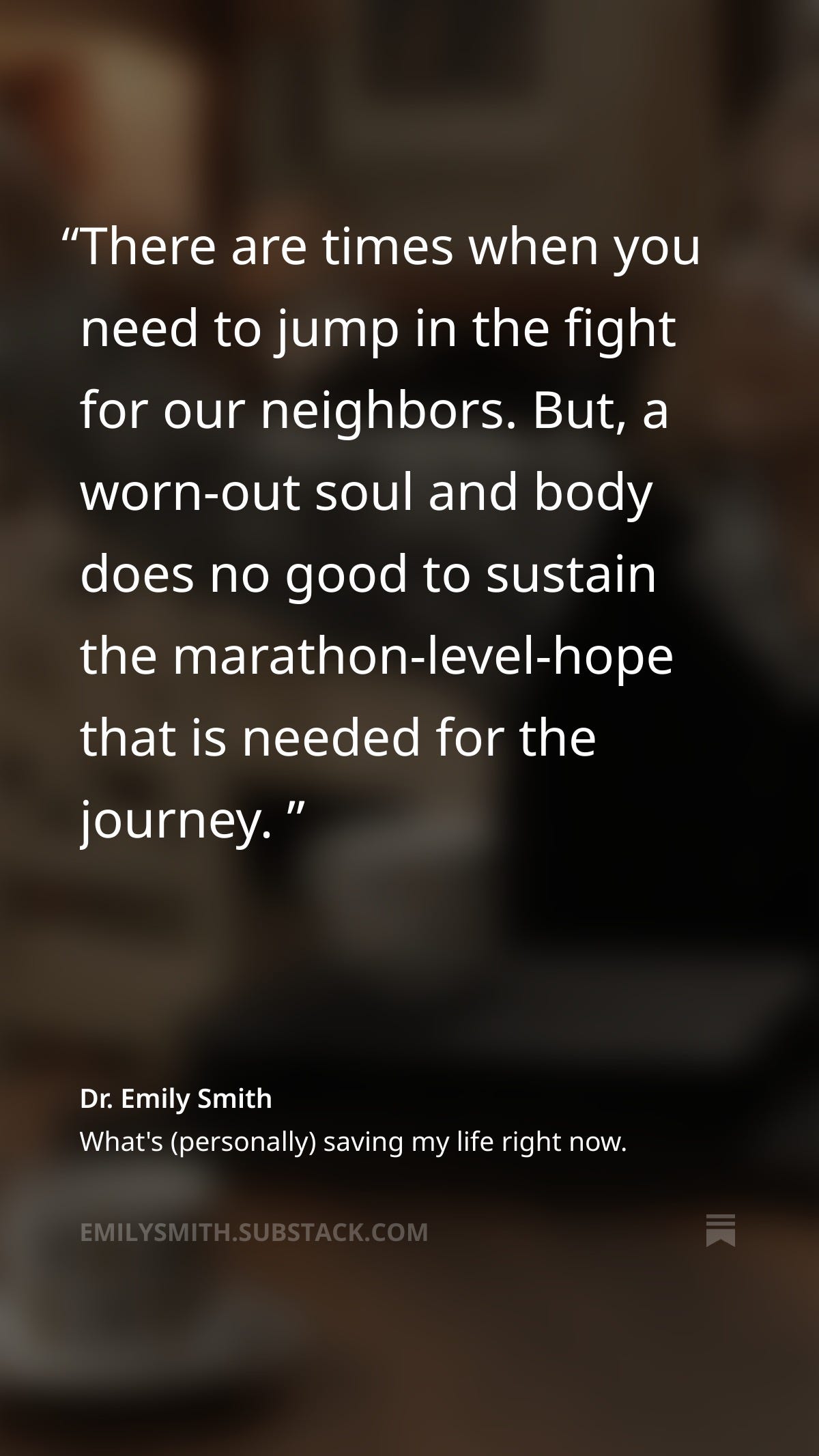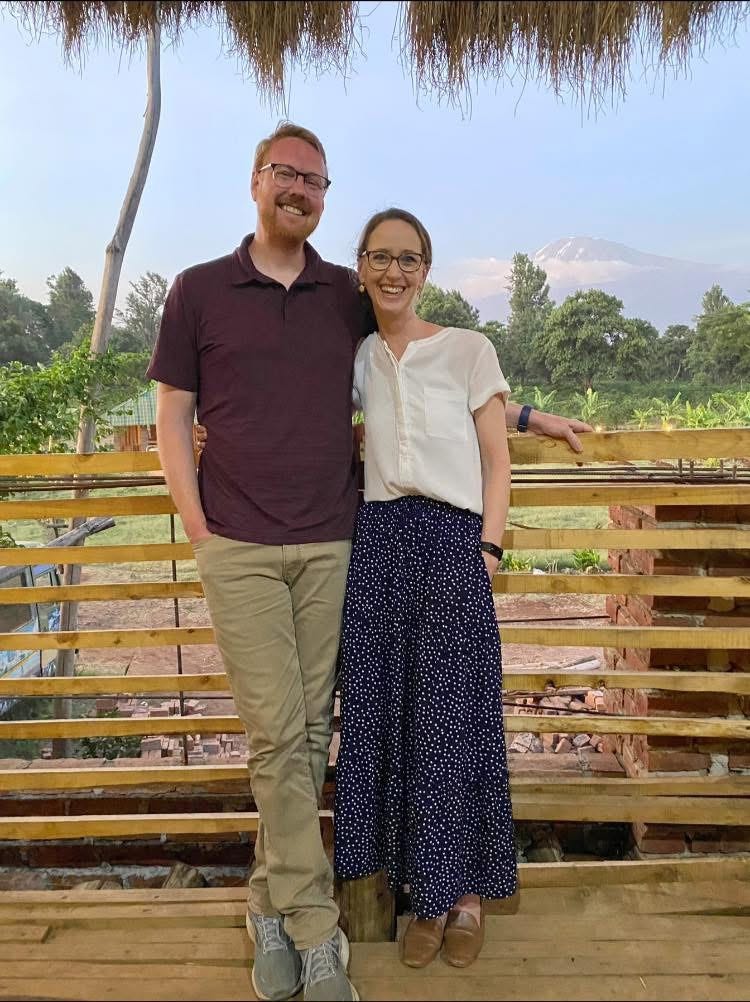Neighbor Tuesday: What happens if the federal foreign aid freeze continues?
Foreign aid is not a handout. And, a video conversation with a friend in the field.
Late last week, I attended a talk with a panel of global health experts on public policy and global health, with two panelists zooming in from Washington DC and Africa. The room was packed with people working in global health in all types of ways - NGOs, students, faculty, malaria/HIV work, children’s health, pandemics. And, I don’t know if I have quite experienced what I did that day. The room was so heavy, collectively heavy. One of the panelists finally said what we all knew but no one wanted to say - “People will die.” Let me tell you more about it.
*On the new administration’s first day, a 90-day freeze was ordered on all US foreign aid. You might also hear this referred to as a ‘stop-work order’. As a catch-up on the federal freezes (including USAID), see my previous posts here and here.*
What is US foreign aid in the first place? Perhaps more importantly, what is it not? In 2023, the US disbursed nearly $72 billion in foreign aid and was projected to disburse nearly $60 billion in fiscal year 2025. However, don’t let the billionaire-bros tell you that this is a huge amount. It’s actually only 1.17% of the ENTIRE US federal budget. As a comparator, the US military budget in 2023 was a whopping $820 billion.
What is the money spent on? We just established that <2% of the federal budget is spent on aid - so cutting that entirely really won’t make that much of a difference. You might have also heard talk this week that foreign aid is just about handing out money or enabling laziness (we hear this lie about assistance programs here in the States too). That’s simply not the case. Let me show you. Almost a quarter (22%) of the foreign aid is for macroeconomic development and growth for countries. What does that mean? The goal of foreign aid is to assist countries in the transition out of aid and into stability. One of the panelists, Dr. Gavin Yamey (a friend and a favorite professor here at Duke), wrote a piece in TIME about this. He said:
Example 1: Romania - Dr. Yamey then gave us an example of what this looks like for people in those countries from his research group here at Duke. Prior to 2003, the HIV epidemic was barrelling through Romania, one of the highest transmission rates in the world. In response, donors stepped up (namely, the Global Fund funded through US foreign aid, Norway, and Europe) and the programs put in place brought the HIV prevalence rates down to 1% in certain high-risk populations - an extraordinary achievement! Then, donor aid was abruptly halted and the HIV prevention efforts all but collapsed. Among the high-risk populations, HIV rose from 1% (2009) to a whopping 53% in 2013 after donor aid was halted.
Example 2: Malaria - Let me show you another example with malaria. Dr. Yamey’s team looked at malaria outbreaks from the 1930s to the 2000s and found 75 outbreaks (also known as resurgence events). Of the 75 identified, 68 were attributed, in large part, to sudden and abrupt stopping of aid. Look at the graph below for 9 countries over time as an example. The peaks you see are increases in malaria cases in the country and the arrows show what happened right before that peak. When indoor residual spraying to kill the mosquitoes (noted as ‘IRS’ in the graph), halting of bednet distributions (this keeps people safe from mosquitos with malaria too), and other programs to prevent or treat malaria are halted because of aid disruption, the increase in malaria cases is 10-16x than before the foreign aid halt.
Let me summarize - The goal of foreign aid is to assist countries in the transition out of aid and into stability. A sudden, chaotic halt of aid derails the strong economic and health growth of low-income countries. Sudden halts don’t simply stall the growth. It wipes it out completely. This harkens back, to me, to the day of colonialism - and is certainly not solidarity neighboring.
Will stopping foreign aid benefit the US? Stopping aid will do quite the opposite! Another panelist helped us understand that foreign aid benefits the US directly. When it comes to foreign aid, the panelist said that “every law put into policy for foreign aid has a connection to how it benefits the US”. Every law put into policy by our elected officials. It’s not just humanitarian aid (which as neighbors would be enough). It’s also beneficial to the US itself! From economics to security to health.
What happens next? The short answer is people will die. Babies will become infected with HIV. Pregnant mothers will not receive their bednets to protect their children against malaria. The panelists talked about this with HIV specifically, starting with PEPFAR. (As a reminder, PEPFAR is the US President’s Emergency Plan for Aids Relief launched by President George W. Bush.) PEPFAR, which receives 2/3 of its funding from USAID, has ensured that 5.5 million babies have been born HIV free because of available treatment and 25 million people have received life-saving HIV treatment.
For every day that the federal freeze on foreign aid continues (the freeze is 90-days):
-At least 220,000 patients won’t receive medicine to prevent or treat HIV.
-30 babies in Tanzania will get HIV because the mothers can’t get their treatment. Per day. These are pregnant HIV+ mothers or HIV+ mothers who are breastfeeding. Multiple that by 90 and that’s 270 babies will get a PREVENTABLE and DEADLY disease.
-Globally, 1,471 babies are estimated to become infected with HIV every day. “If those children are subsequently denied treatment, a third will be dead within a year.” At the end of the 90 day freeze, 133,000 babies will become infected with HIV. And, an estimated 43,688 will die.
Why is this such a big deal? Other than thousands will die from these freezes, it’s not as simple as starting the global health programs again after the 90 days. The stop-work order and freeze disrupts the whole system. The majority of USAID staff, as an example, are people in-country and on-the-ground (as opposed to being in the US). Many are contractors that rely on the income from their jobs. If that goes away, like they have with the freeze, they will probably have to find something else to do. They have families to feed just like the rest of us. So, restarting the programs are not simple. Payment systems will have to be initiated again and this is not like turning on the faucet. It’s complicated and extensive. A pause is simply not a pause.
What about the waiver? There is a waiver for “life-saving humanitarian assistance” that has been put in place. What exactly does that mean and what is (or is not) included? It’s really hard to figure that out.
Let me tell you one of the areas not covered in the waiver though - orphans and vulnerable children living with HIV. 17,000 are given treatments every day around the globe (Citation: Personal communication). And, they are not covered in the waiver. Prevention programs aren’t considered in the waiver either. Prevention programs for HIV, malaria, cervical cancer…
What do we do now? Let me give you some encouragement. Your voice and advocacy the past week have mattered. All of it!
“The waivers are a result of the intense backlash to the foreign aid freeze.” - Dr. Chris Beyrer, Director of the Duke Global Health Institute and panelist.
Your voice matters. Your advocacy matters. Call your reps. Join the marches. Educate yourself.
And, also.
Take care of yourself. I wrote a recent post on how I’m doing that.
I wonder if part of the new administration’s plan is to create loud chaos and make everyone so angry that we all yell and then burnout.
Don’t give in, friends. Resist. Rest. Yell. Advocate. Sleep. Take care of yourself and one another. Onward we go!
I want to end with a recorded conversation I had with one of the panelists, Dr. Dorothy Dow, who lives and works in Tanzania at the Kilimanjaro Christian Medical Center. This is where I go every summer with my family so some of you might remember the posts and another post. You can see Mount Kilimanjaro from the hospital! (Here I am with my hubs in 2023. Gorgeous!)
Dr. Dow leads a large team of dedicated global health workers giving life-saving HIV care to the most vulnerable. She described a heart-wrenching picture of what the past week has been like. I gave you a ton of statistics in this post and lots of info. I want you to hear the human aspect behind those numbers from someone in the field too.
Until next time, keep neighboring.
-Emily
-
-










Thank you Emily! I've shared your prior USAID post in several conversations and will use this one as the incredible resource it is too. I'm learning so much from you and will continue using my voice in the ways I can! My goal is to do something each day to help. Some days it seems tiny (like signing and sharing a petition or email link), other days it is many phone calls or other actions, continuing to share info, and diving into helpful conversations. ❤️